- Getting Started
-
by k.mammasis
Vitamin B12 and folate are both important nutrients that play key roles in the body’s processes related to DNA synthesis, cell division, and red blood cell production. A deficiency in either nutrient can lead to a range of health problems, including anemia.
Vitamin B12 and folate deficiency are connected
Vitamin B12 is necessary for the conversion of folate into its active form, methylfolate. Without enough B12, the body cannot properly convert folate into its active form, resulting in a functional folate deficiency. This can lead to a buildup of homocysteine, an amino acid that can be toxic to cells and contribute to inflammation and other health problems.
Additionally, a B12 deficiency can lead to a decrease in the number of red blood cells, as well as abnormal red blood cell formation. This can result in megaloblastic anemia, a condition characterized by large, immature red blood cells that cannot effectively carry oxygen throughout the body. It’s important to note that while a functional folate deficiency can occur as a result of a B12 deficiency, a folate deficiency can also occur independently of a B12 deficiency. Therefore, it’s important to ensure adequate intake of both of these nutrients through a balanced diet and functional foods to maintain overall health.














 MILESTONE® Food for your Genes
MILESTONE® Food for your Genes